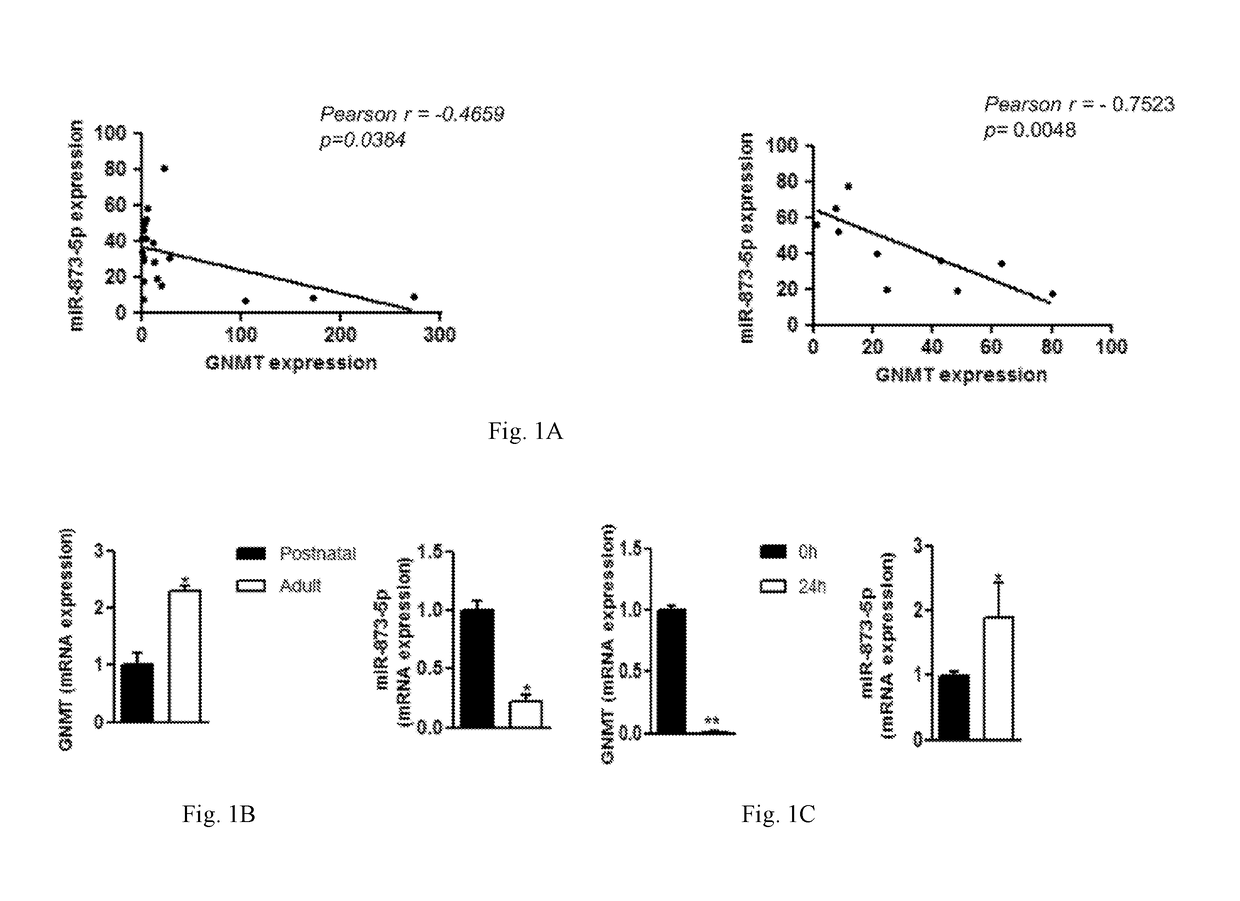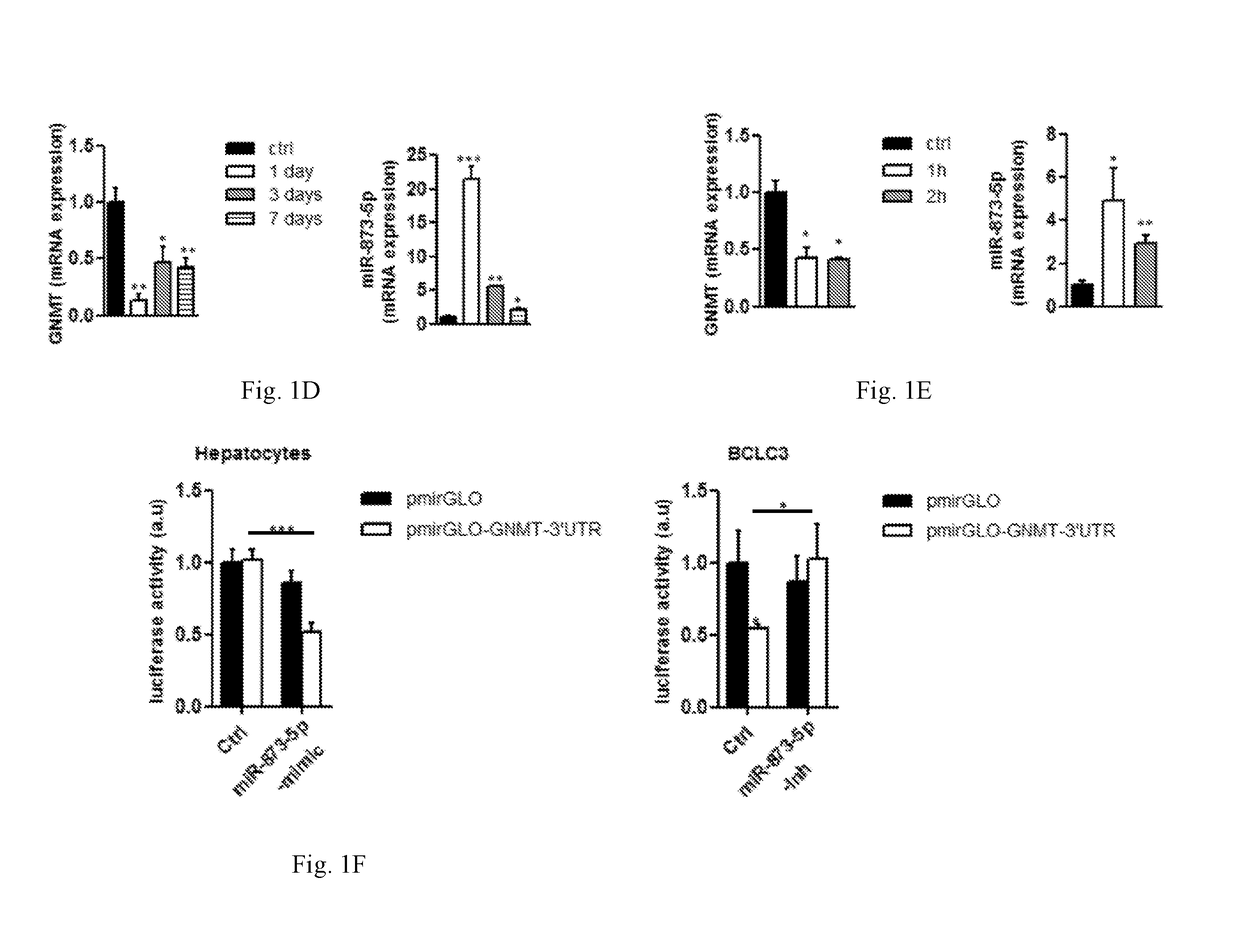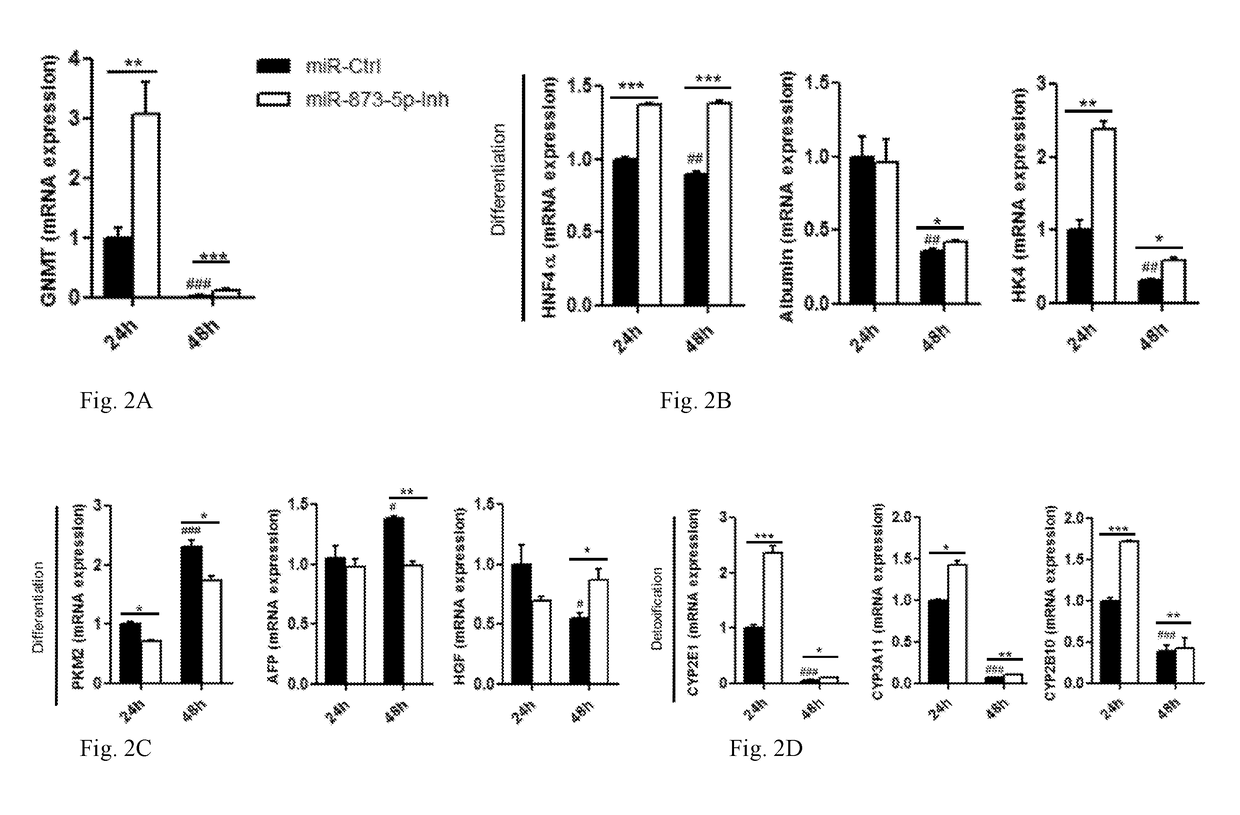Methods and compositions to treat liver diseases and conditions
a technology of liver disease and composition, applied in the direction of transferases, instruments, metabolic disorders, etc., can solve the problems of synergistic treatment effect of the liver, and achieve the effects of reducing the microrna level or function, and reducing the microrna activity
- Summary
- Abstract
- Description
- Claims
- Application Information
AI Technical Summary
Benefits of technology
Problems solved by technology
Method used
Image
Examples
example 1
Material and Methods
Human Samples
[0088]Liver DNA and RNA were obtained from HCC patients (described in Table 1) from the BCLC tissue collection (Hospital Clinic, Barcelona, Spain) and 2 healthy livers provided by the Institute of Oncology of Asturias Tumour Bank
TABLE 1HCC patient information.VariableCasesTotal Patients35Male25Female10Age (mean ± sd)59.47 ± 12.62Disease EtiologyHCV14HBV10HCV & HBV1Alcohol Consumption4Alcohol consumption & HBV1Steatohepatitis2Hemochromatosis1Healthy liver2Tumor Size 255-10 cm7 >10 cm3Tumor extensionSingle tumor32With satellites or vascular invasion12Multifocal tumor3
[0089]Forty-seven patients with liver cirrhosis and HCC with preserved liver function and corresponded to either BCLC stage A (n=34) and B (n=13) were provided by Dra. Erica Villa (University of Modena and Reggio Emilia, Modena, Italy). Further information is provided in the Villa E., et al, Gut. 2016 May; 65(5):861-9, Epub 2015 Feb. 9. Informed consent was obtained from all the patients ...
example 2
Material and Methods
Human Samples:
[0119]RNA from a cohort of patients with liver cirrhosis was provided by Dr. Javier Crespo (Hospital Universitario Marques de Valdecilla. Santander) (n=42) and Ramiro Jover (University of Valencia) (n=30). Informed consent was obtained from all the patients included in the study, according to the ethical principles embodied in the Declaration of Helsinki.
Sudan III Methods:
[0120]OCT embedded frozen samples were sectioned (8-12 μm thick), cleared with 60% isopropanol, then stained with freshly prepared Sudan III solution (0, 5% in isopropanol Sudan III Panreac Ref: 251731.1606 filtered with a 0.2 mm filter) for one hour and finally cleared again with 60% isopropanol. Sections were counterstained with Mayer hematoxylin (Sigma Ref: MHS32-1L) according to manufacturer's instructions and mounted in aqueous mounting medium for lipids quantification.
H&E Methods:
[0121]Paraffin embedded liver samples were sectioned (5 μm thick), dewaxed with a Xylene substitu...
example 3
[0141]Inhibition of miRNA-518d-5p
[0142]Experiments are also performed using an anti-miR-518-5p (Dharmacon). See methods in Examples 1 and 2 herein. The anti-Mir-518-5p is obtained from Dharmacon (hsa-miR-518-5p). These hairpin inhibitors are single stranded RNA oligonucleotides designed with a proprietary modification pattern to enhance functionality and target the following sequence in miR-518: cucuagagggaagcacuuucug (SEQ ID NO: 8 for human) (miRBase Accession number: MIMAT0005456). The anti-miR sequence binds and sequesters the complimentary, mature microRNA strand, see also Examples 1 and 2. Inhibition experiments are performed as indicated in Examples 1 and 2 herein. The experiments demonstrate that inhibition of miR-518d-5p induces GNMT levels. The reestablishment of GNMT expression by miRNA-518d-5p inhibition reduces the development of steatosis and steatohepatitis in mice under a steatotic diet. Taken together, the results highlight the role of miRNA-518d-5p as a therapeutic ...
PUM
| Property | Measurement | Unit |
|---|---|---|
| Composition | aaaaa | aaaaa |
| Enzyme activity | aaaaa | aaaaa |
Abstract
Description
Claims
Application Information
 Login to View More
Login to View More - R&D
- Intellectual Property
- Life Sciences
- Materials
- Tech Scout
- Unparalleled Data Quality
- Higher Quality Content
- 60% Fewer Hallucinations
Browse by: Latest US Patents, China's latest patents, Technical Efficacy Thesaurus, Application Domain, Technology Topic, Popular Technical Reports.
© 2025 PatSnap. All rights reserved.Legal|Privacy policy|Modern Slavery Act Transparency Statement|Sitemap|About US| Contact US: help@patsnap.com



